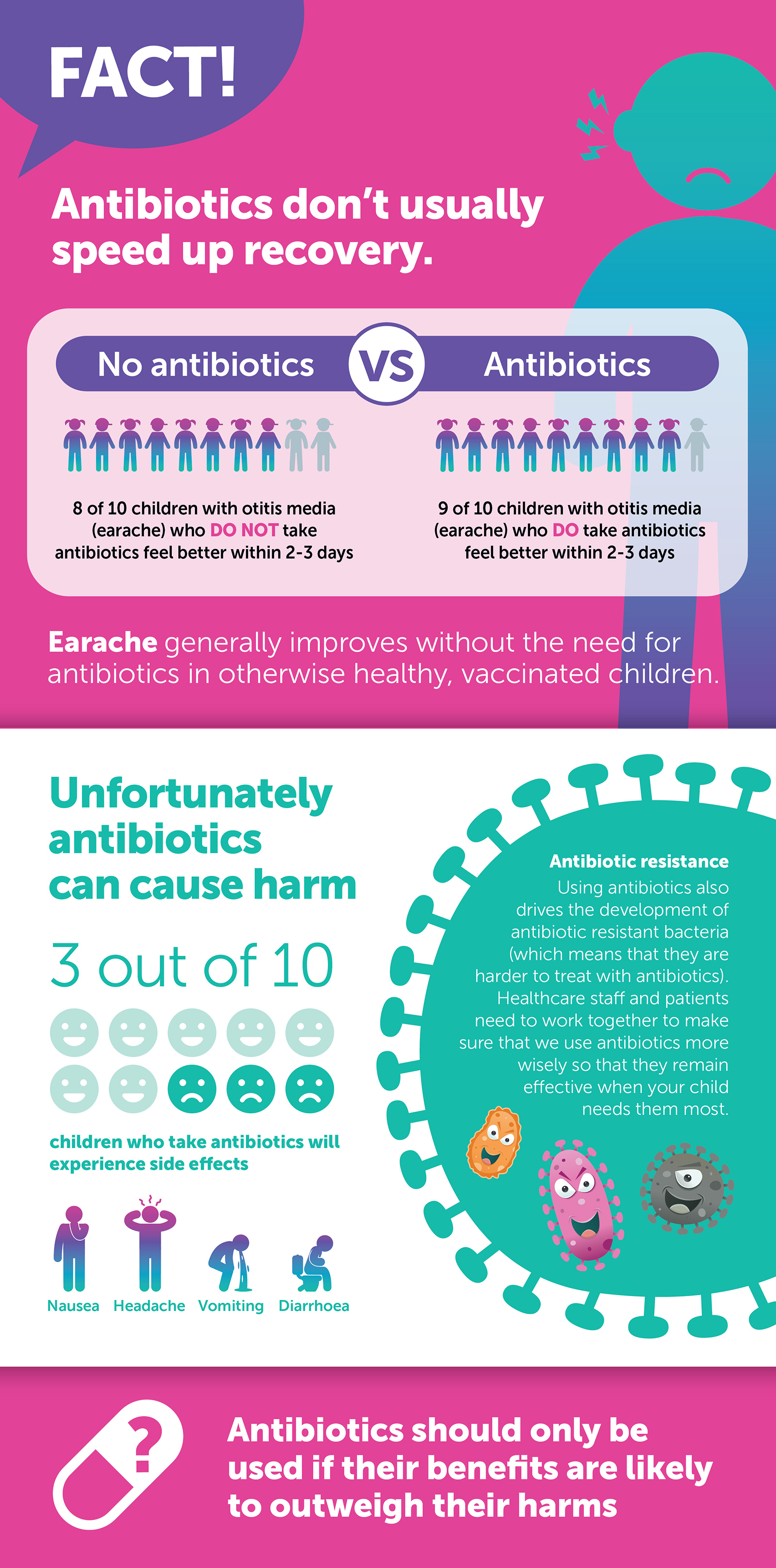The middle ear is the small space behind the eardrum; this space is usually filled with . Otitis media is an infection of the middle ear that causes inflammation and a build-up of fluid. It is often extremely painful and be be associated with high fever.
Symptoms of otitis media:
- Earache
- Fever may be present
- Misery
- Pulling, tugging or rubbing ear
- Slight hearing loss
In most cases the symptoms of a middle ear infection develop quickly and resolve in a few days. In some cases, pus may run out of the ear, this is the fluid that had built up behind the ear drum causing a small hole in the eardrum; this tends to heal up by itself.
Causes
Most cases of earache/otitis media in young children (under 5 years of age) are caused by viral infections; your child may also have a runny nose and cough. The Eustachian tube is a small tube that links the middle ear to the back of the throat. Its main job is to regulate air pressure in the ear. Its other function is to drain any fluid or mucus that builds up. The common 'cold' can cause the Eustachian to become blocked, causing a build up of fluid or mucus and resulting in earache.
Paediatric Pathways
![]() Advice Sheet
Advice Sheet
![]() Otitis Externa Advice Sheet
Otitis Externa Advice Sheet
![]() Community Pharmacists
Community Pharmacists
![]() Remote assessment
Remote assessment




